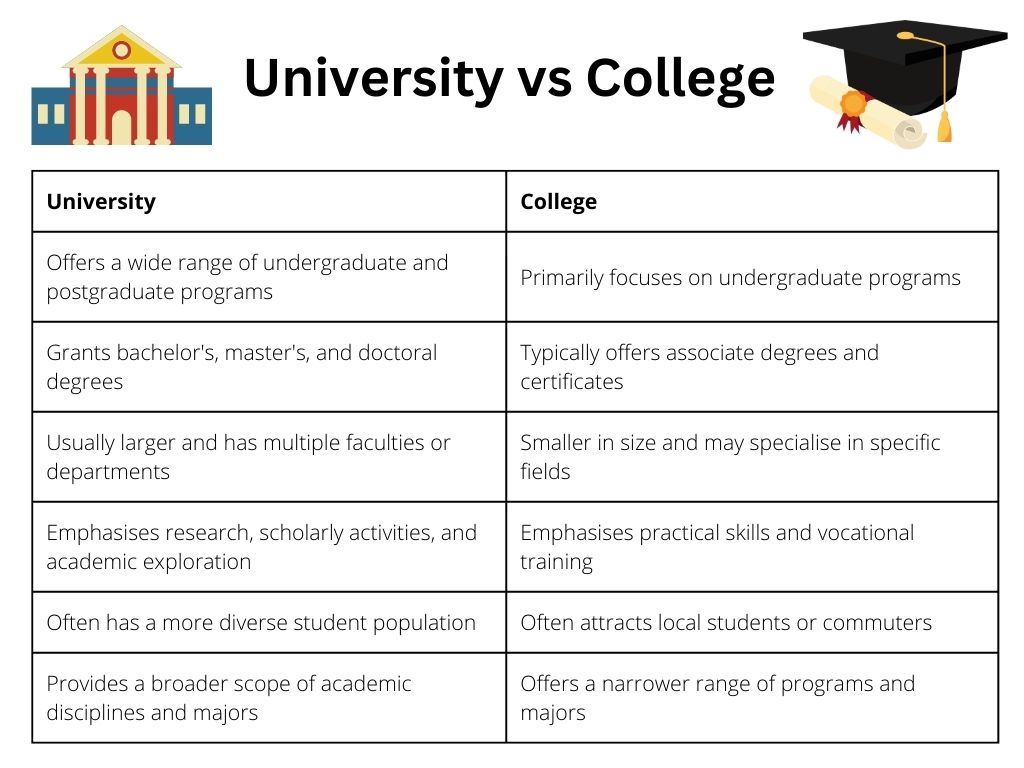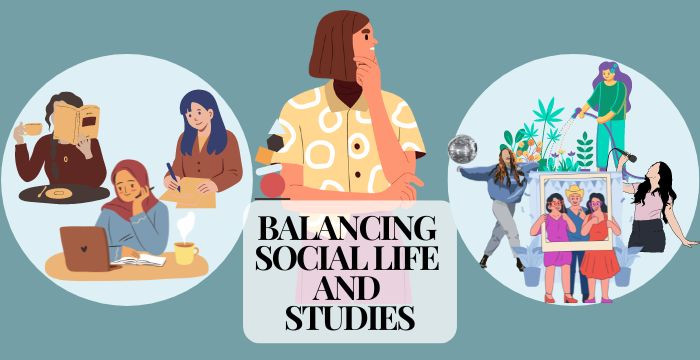
You have just passed out of your school and are now exploring colleges and universities for higher studies. So, how will you choose whether a college or university is the right place for you? Or wait, do you think college and university are the same? Then this is for you.
Both institutions, colleges and universities, offer various academic opportunities, but it is crucial to understand their differences before making a decision. In this blog, we will explore the distinctions between colleges and universities and discuss the factors you should consider while choosing between the two.
What is a College?
Colleges are typically smaller institutions that focus on undergraduate education. They offer specialized courses in specific fields such as engineering, arts, commerce, or science. Students attending colleges usually obtain a bachelor's degree upon completion of their program.
There are three types of colleges in India:
- Government colleges: They are funded by the government and provide quality education at an affordable cost. These institutions often have stringent admission criteria due to high demand.
- Private colleges: On the other hand, private colleges are funded by private organizations or individuals. They offer a wide range of courses and provide more flexibility in terms of admission criteria and curriculum.
- Autonomous colleges: The colleges that fall under this category have the authority to design their own courses and assessment methods, offering students a distinct and rich learning experience.
What is a University?
Universities are larger institutions that offer a wide range of academic programs, including undergraduate, postgraduate, and research-based courses. They provide a comprehensive learning environment with various departments and faculties. Universities often have collaborations with international institutions, allowing students to gain exposure to a global education system.
In India, universities can be classified into two types:
- Central universities: They are established by the central government and are known for their academic excellence. Central universities offer a diverse range of courses and provide students with ample opportunities for research and innovation.
- State universities: These institutions are established by state governments and cater to the educational needs of their respective states. They offer a wide range of courses and often have affiliations with colleges within their jurisdiction.

Factors to Consider While Choosing Between College and University:
- Specialization: If you have a clear idea of the field you want to pursue, a college might be the right choice. Colleges offer specialized courses that focus on a specific subject, providing in-depth knowledge and expertise. Universities, on the other hand, offer a broader range of programs and allow for interdisciplinary studies.
- Infrastructure and Facilities: Consider the infrastructure and facilities offered by both colleges and universities. Universities generally have better resources, including well-equipped libraries, research labs, sports facilities, and extracurricular activities. However, some colleges may also have state-of-the-art facilities, especially autonomous or prestigious institutions.
- Environment: If vast campuses bustling with students of different cultures, interests, and visions sound exciting to you, then a university is an ideal place for you. On the contrary, if you crave intimate bonds with friends and teachers and prefer a focused environment, you can consider exploring good colleges.
- Faculty and Research Opportunities: Universities often boast highly qualified faculty members who are experts in their respective fields. They also provide better research opportunities, which can be beneficial if you are considering a career in academia or research, while colleges may have a more personalized approach to teaching, with smaller class sizes and closer student-faculty interactions.
- Cost and Affordability: Consider your financial situation and the cost of education. Government colleges and universities generally have lower tuition fees compared to private institutions. However, private colleges and universities may offer scholarships or financial aid options that can make education more affordable.
Choosing between a college and a university is an important decision that can shape your academic journey. While colleges offer specialized courses and a more focused learning environment, universities provide a broader range of programs and numerous opportunities for research and personal growth. Consider factors such as specialization, infrastructure, faculty, research opportunities, and affordability before making your choice.
One thing that is essential for your academic success in both college and university is assignments. At The Assignment Ninjas, we are comprised of professional writers. Utilizing their rich experience, our experts can craft high-quality assignments within the stipulated time so that you can focus on your studies and enjoy your vibrant phase of life a little more.
Concluding, an informed choice between college and university can make all the difference in your academic and professional journey. Consider all factors, make a decision that feels right for you, and get ready to embark on an exciting new chapter of your life.


